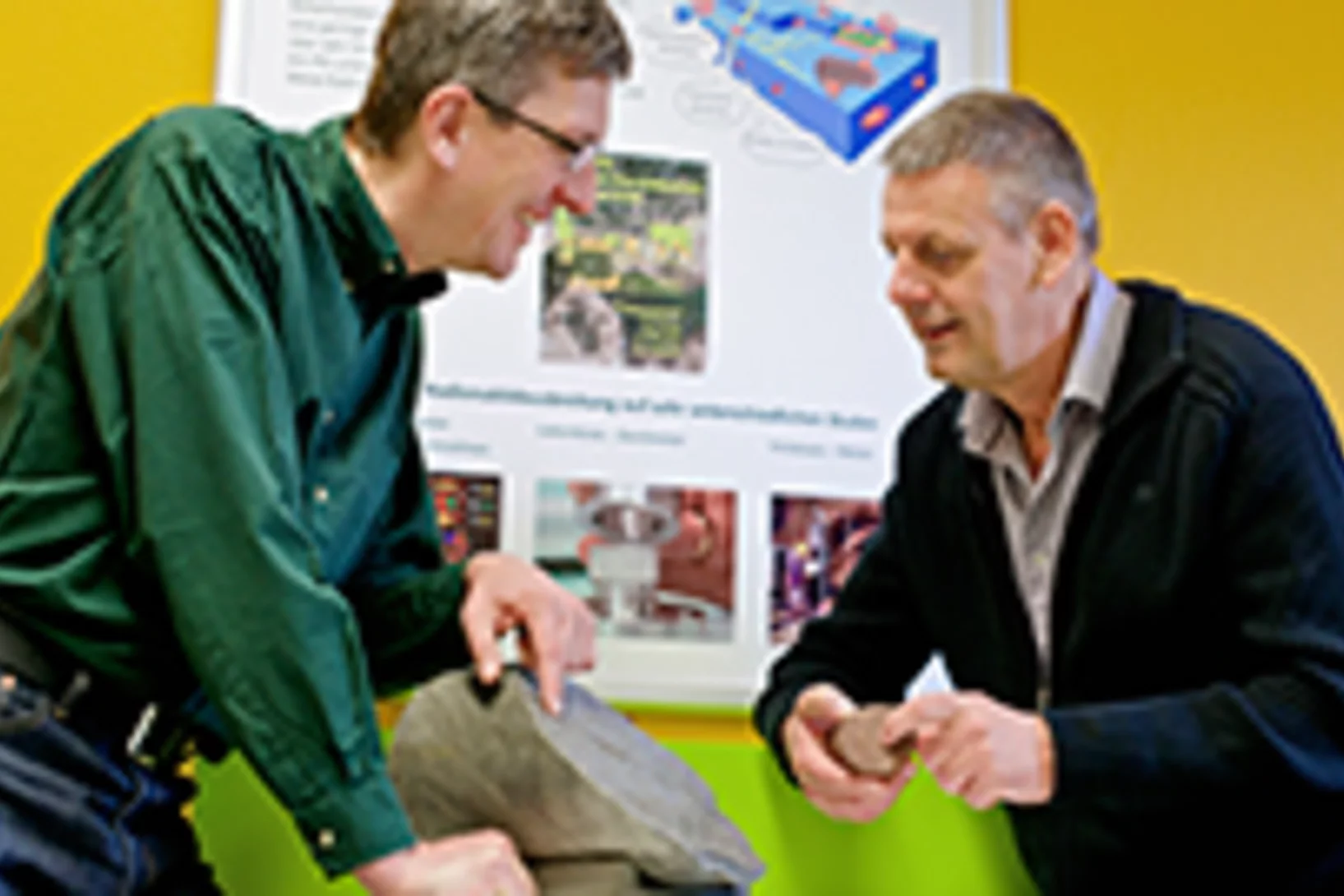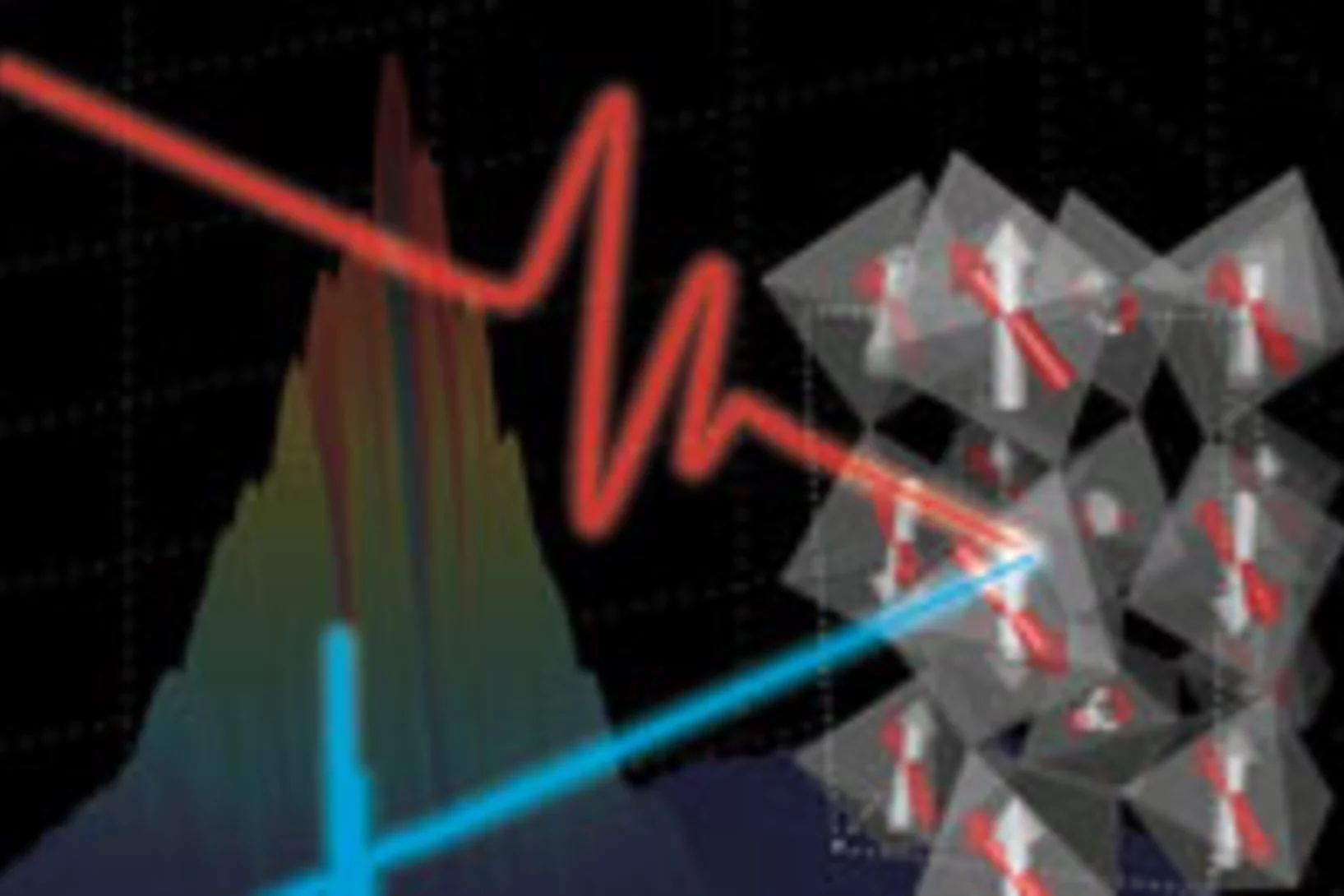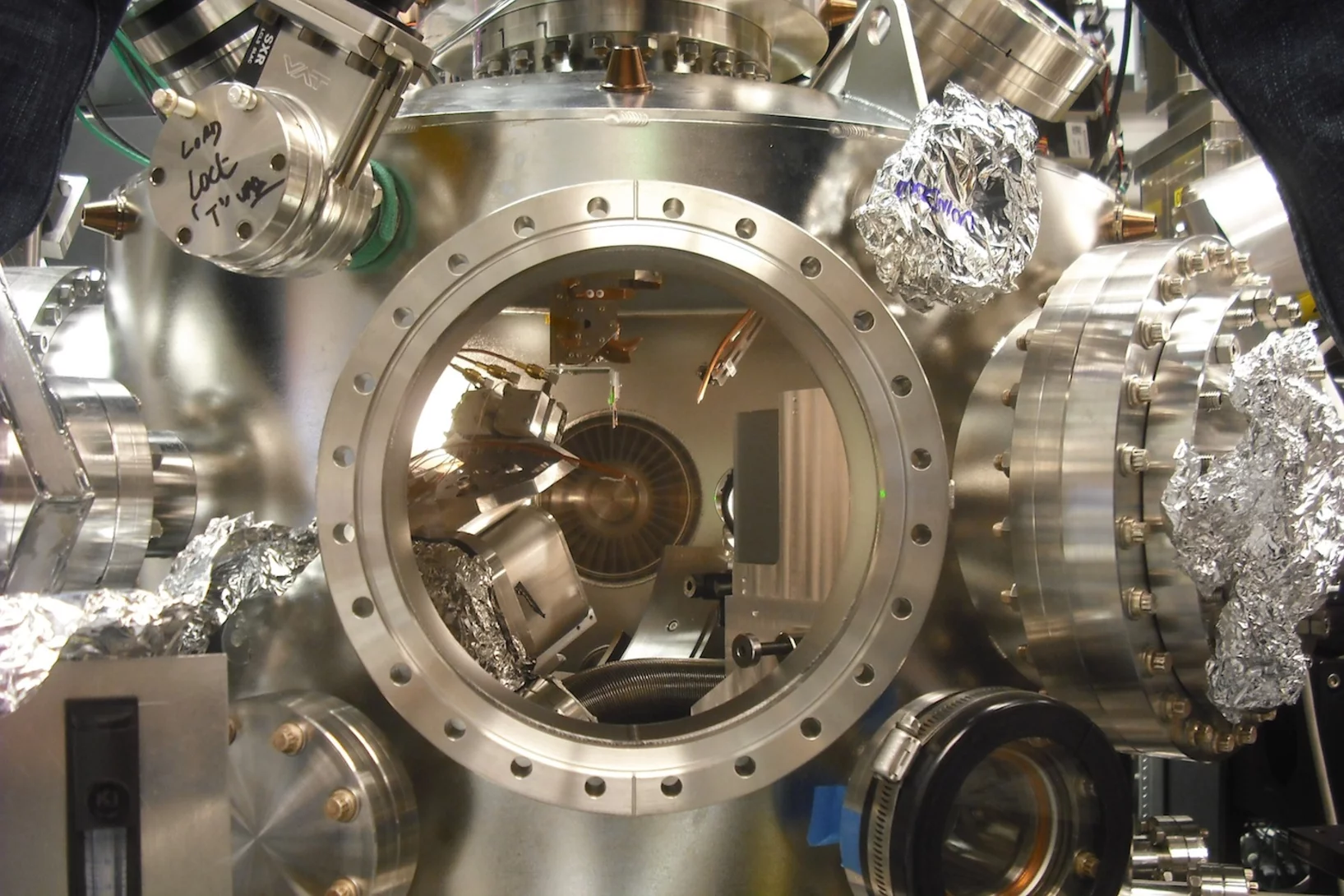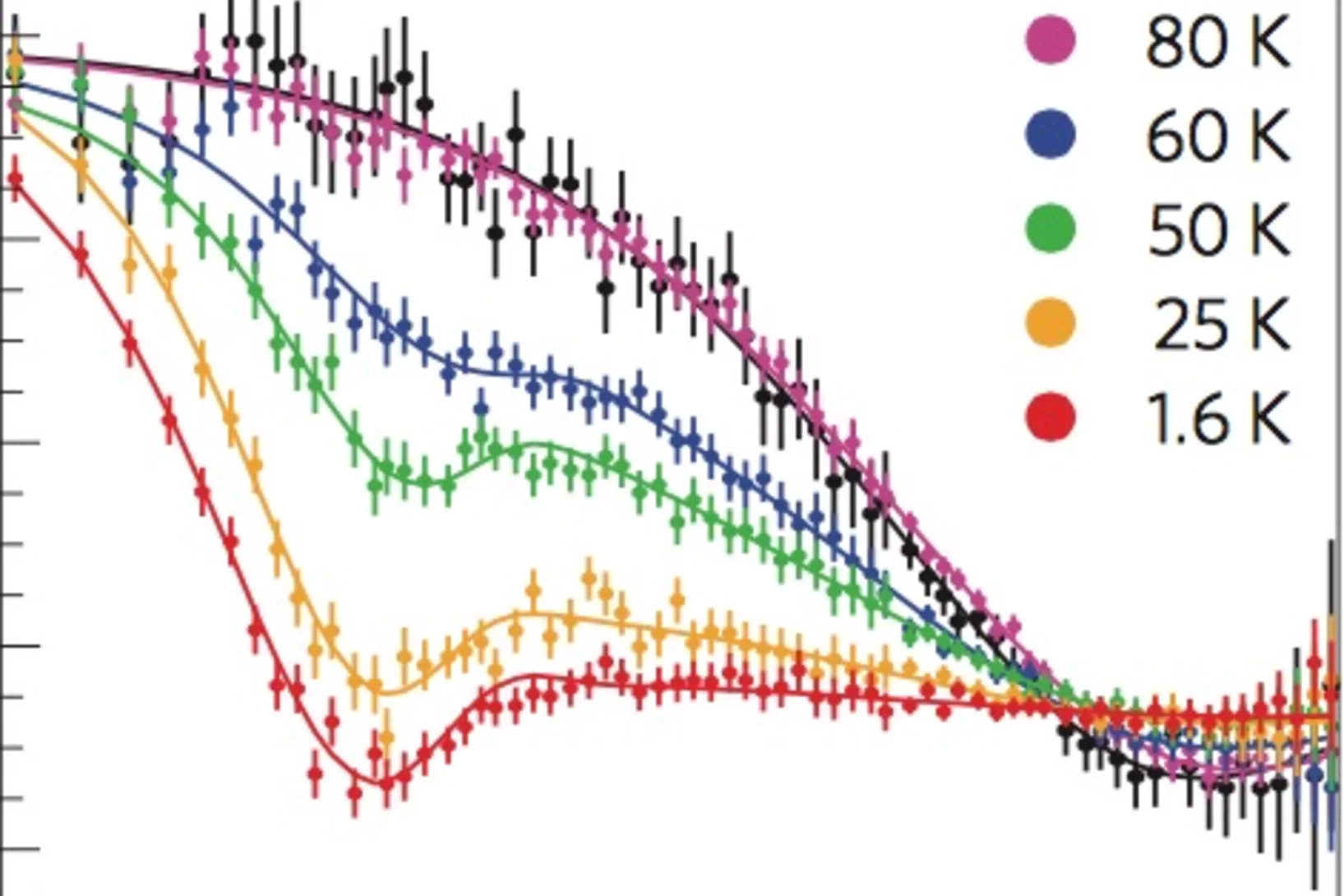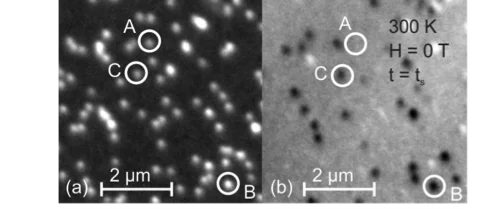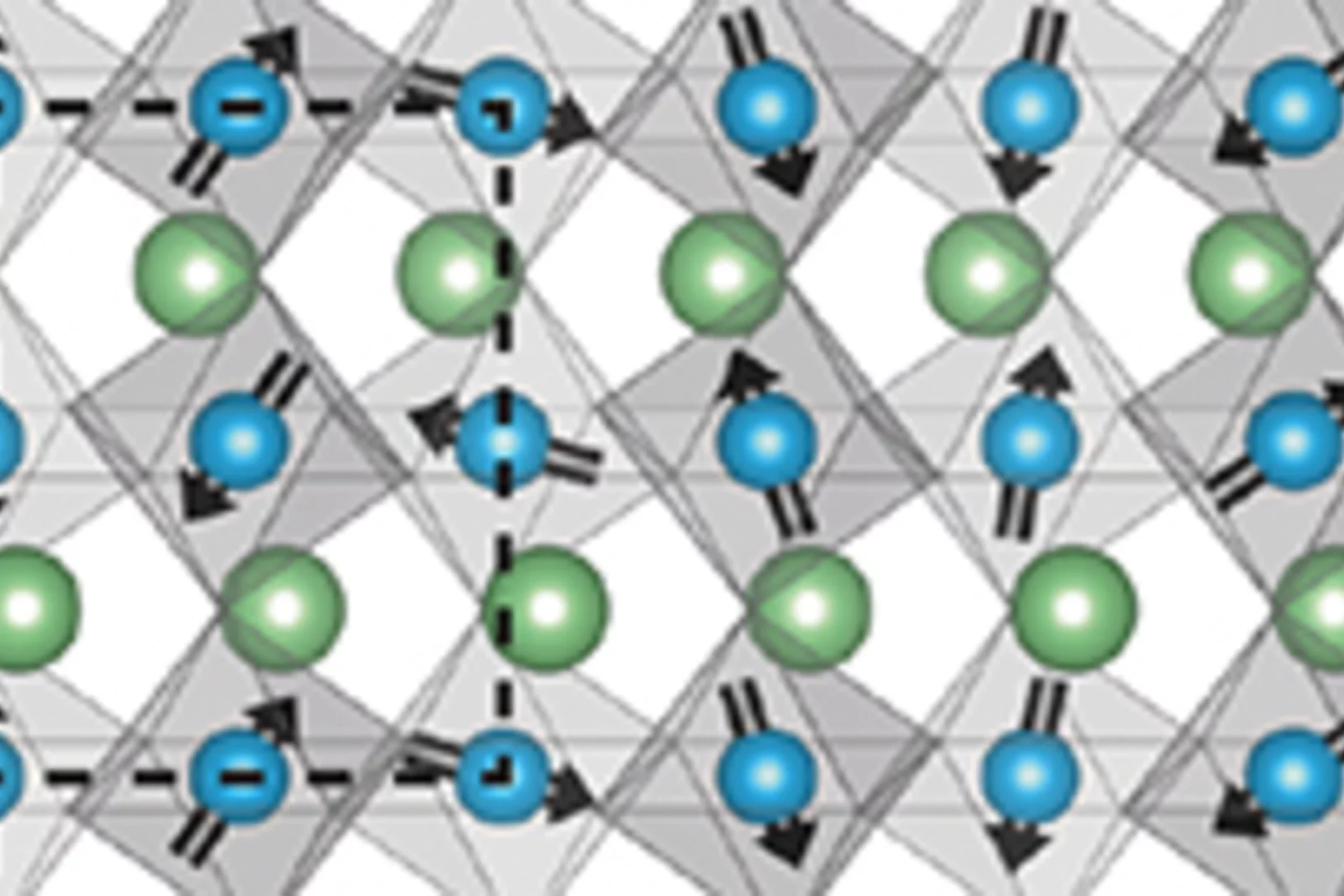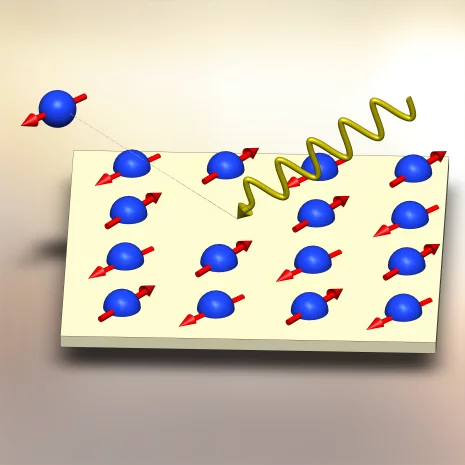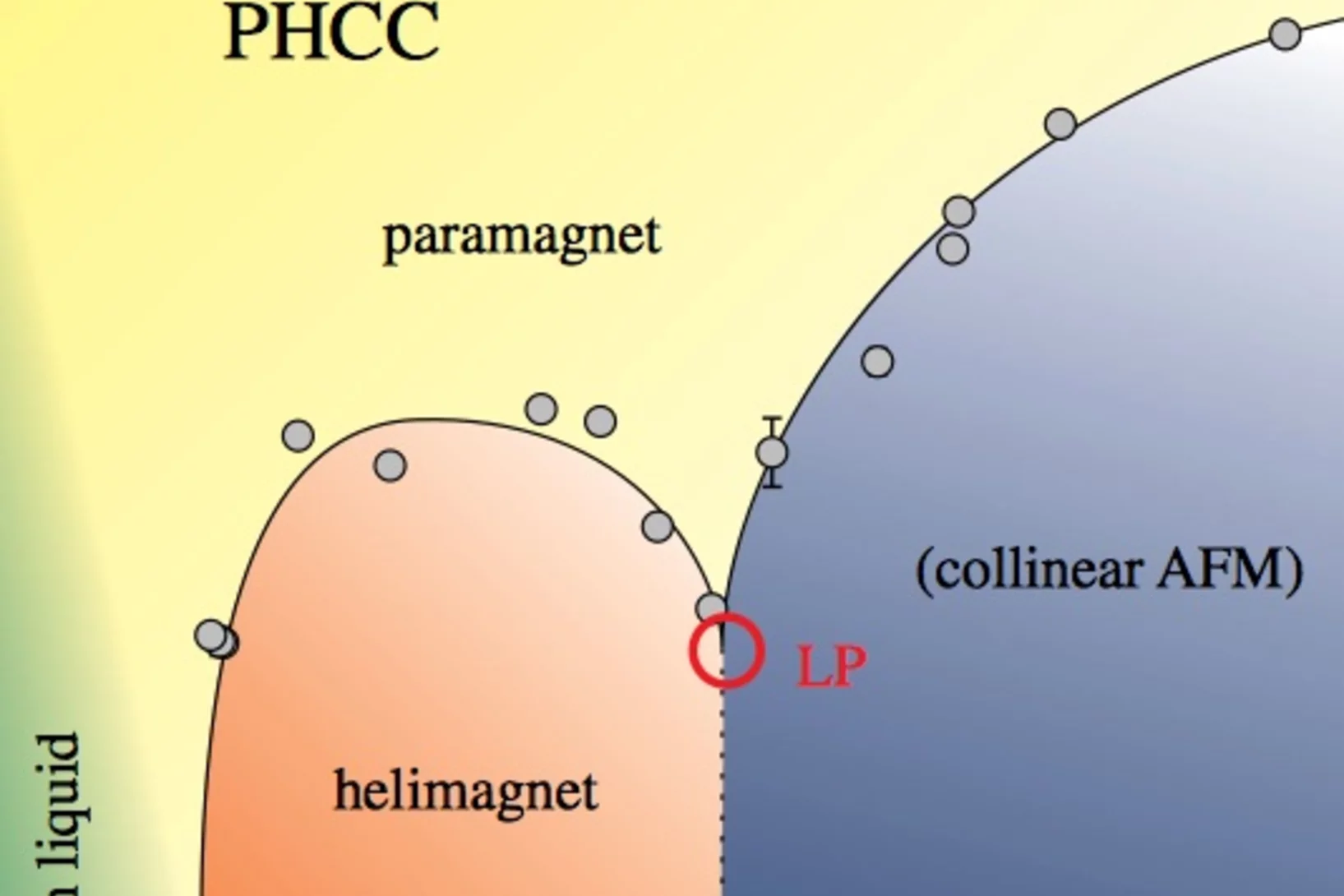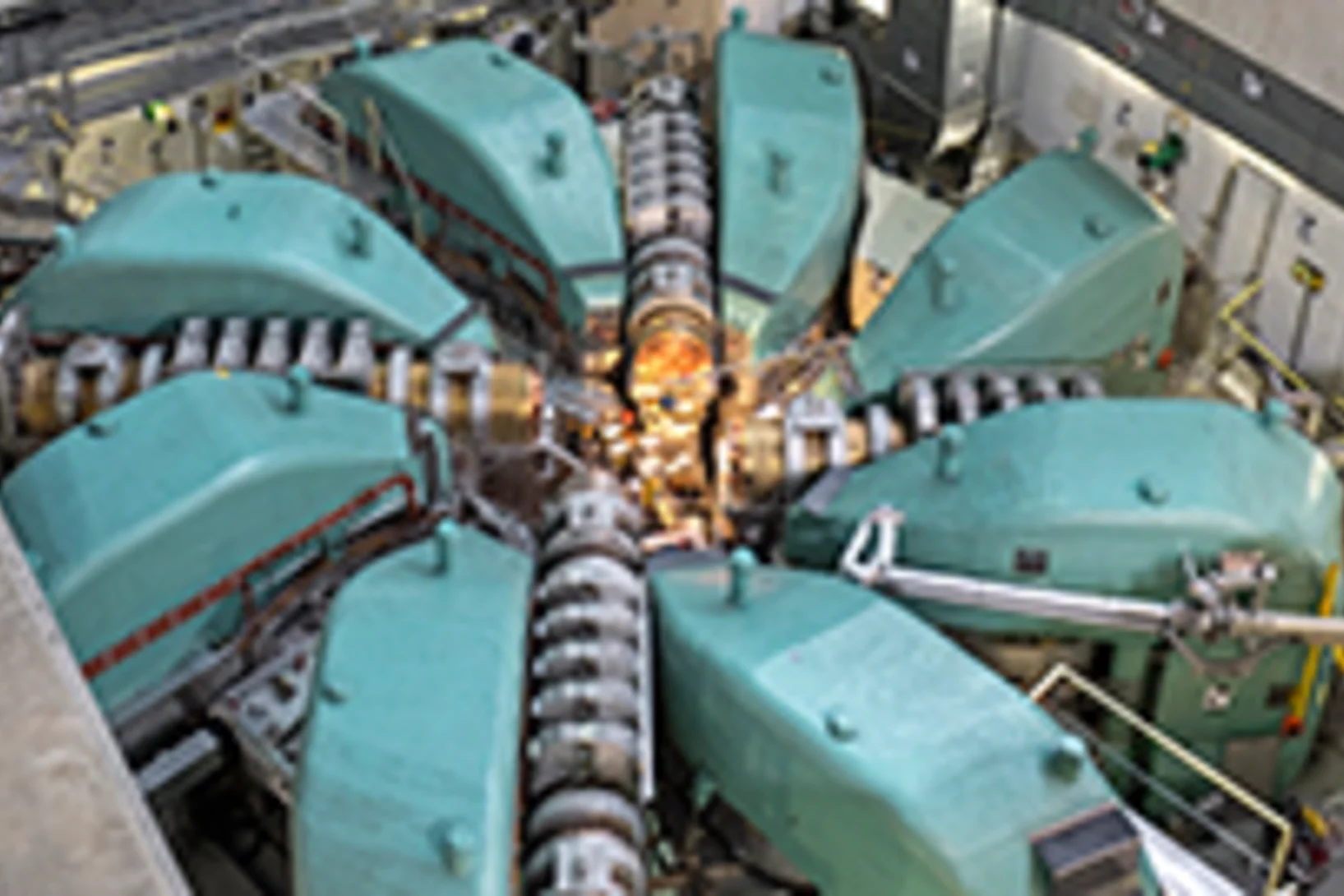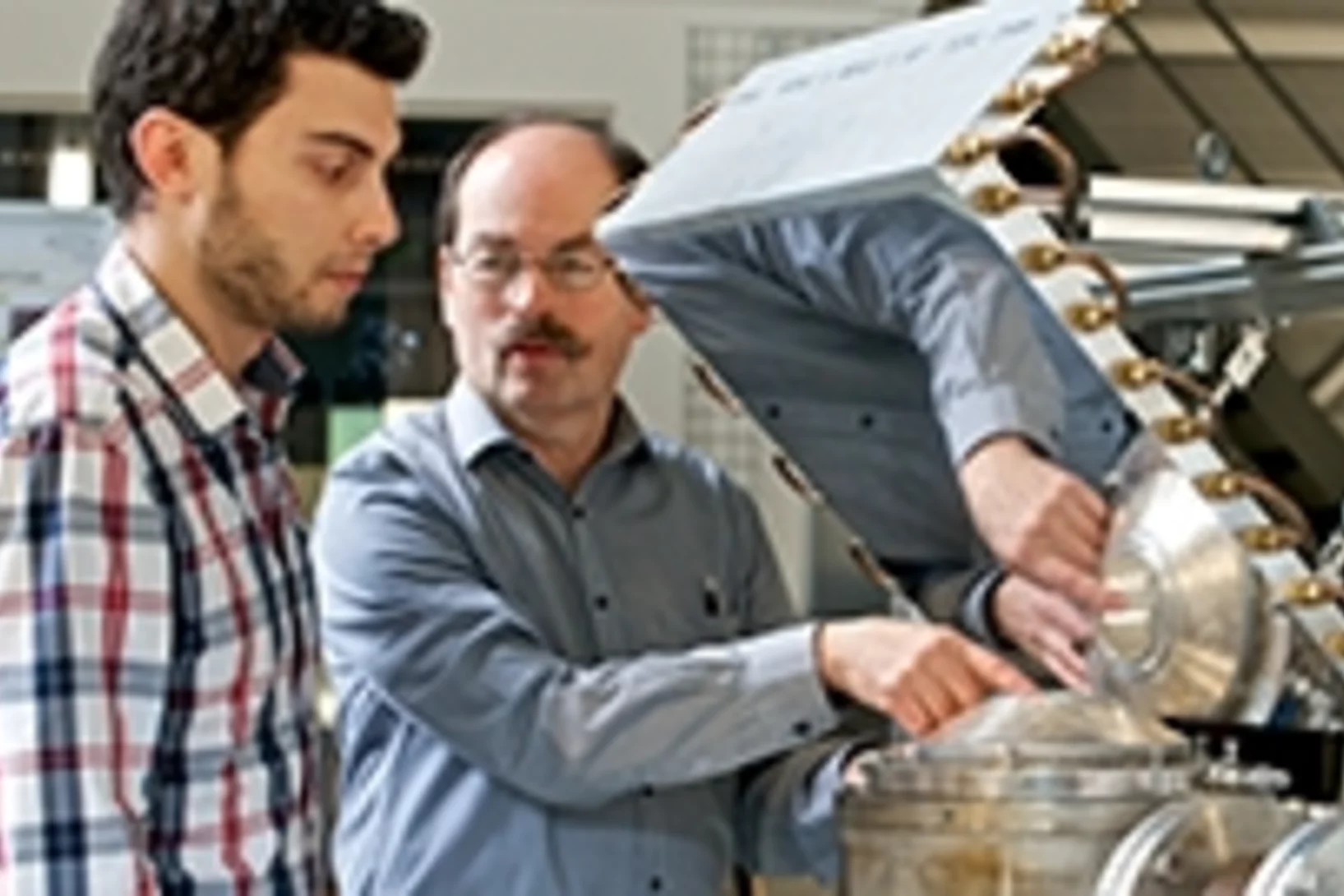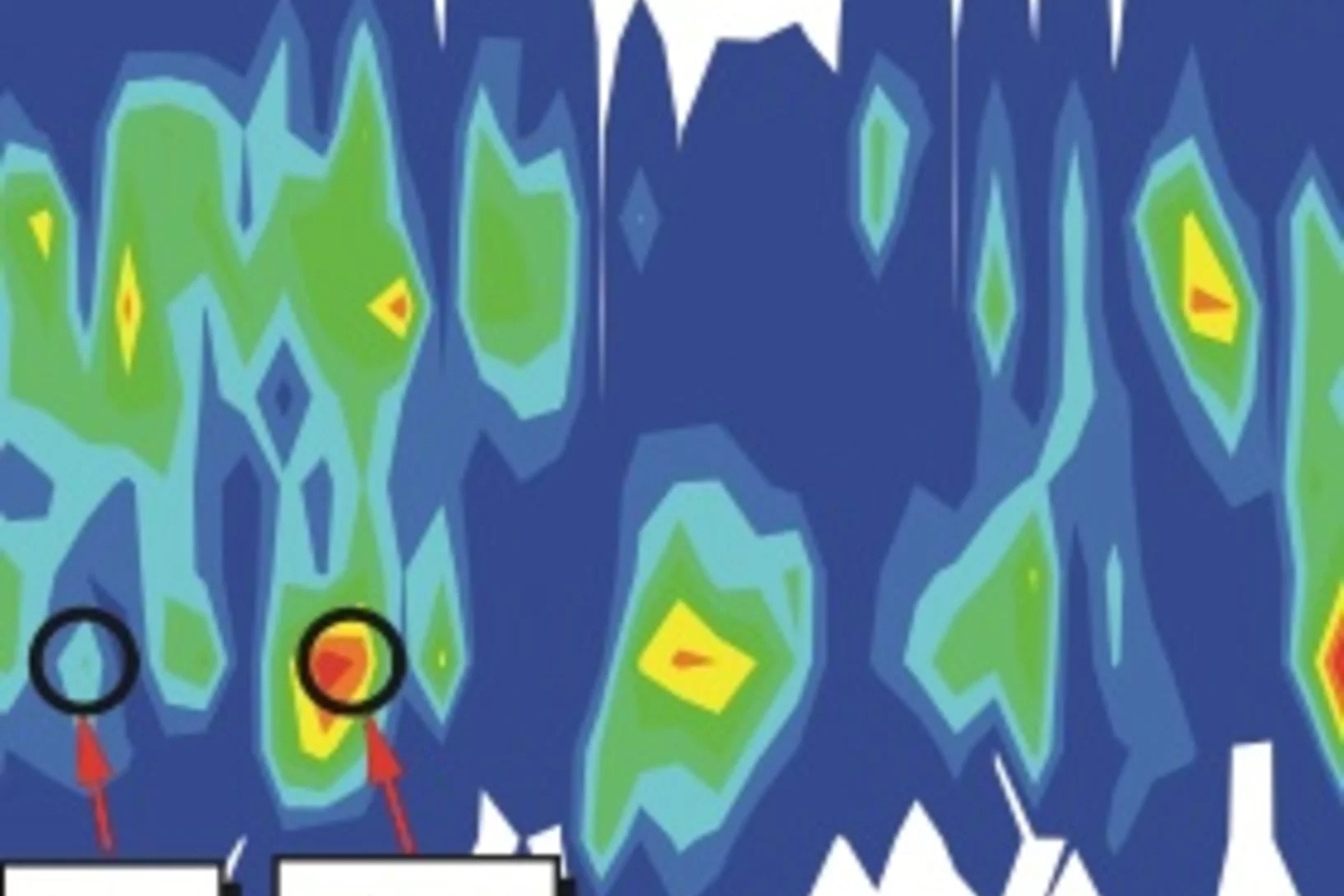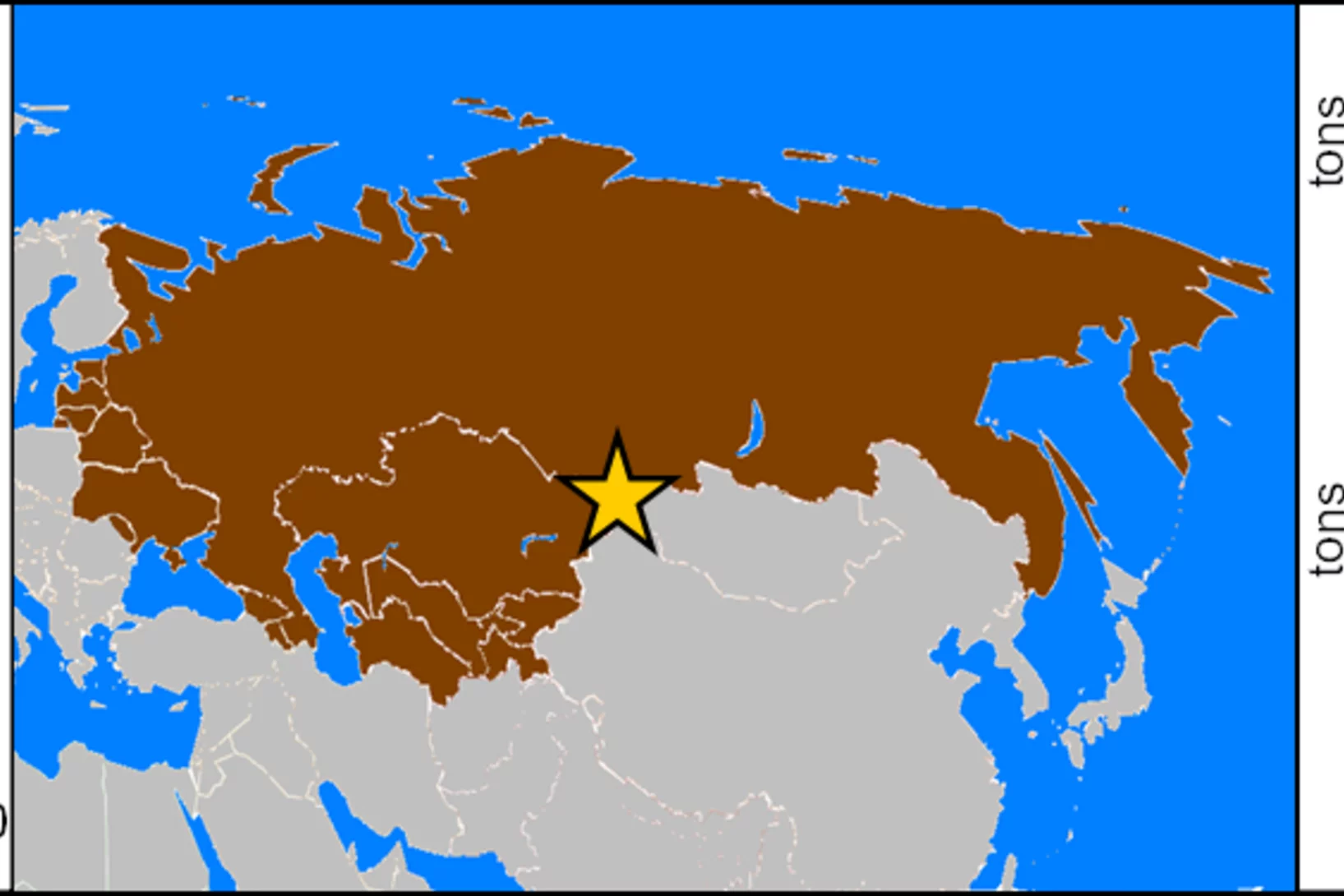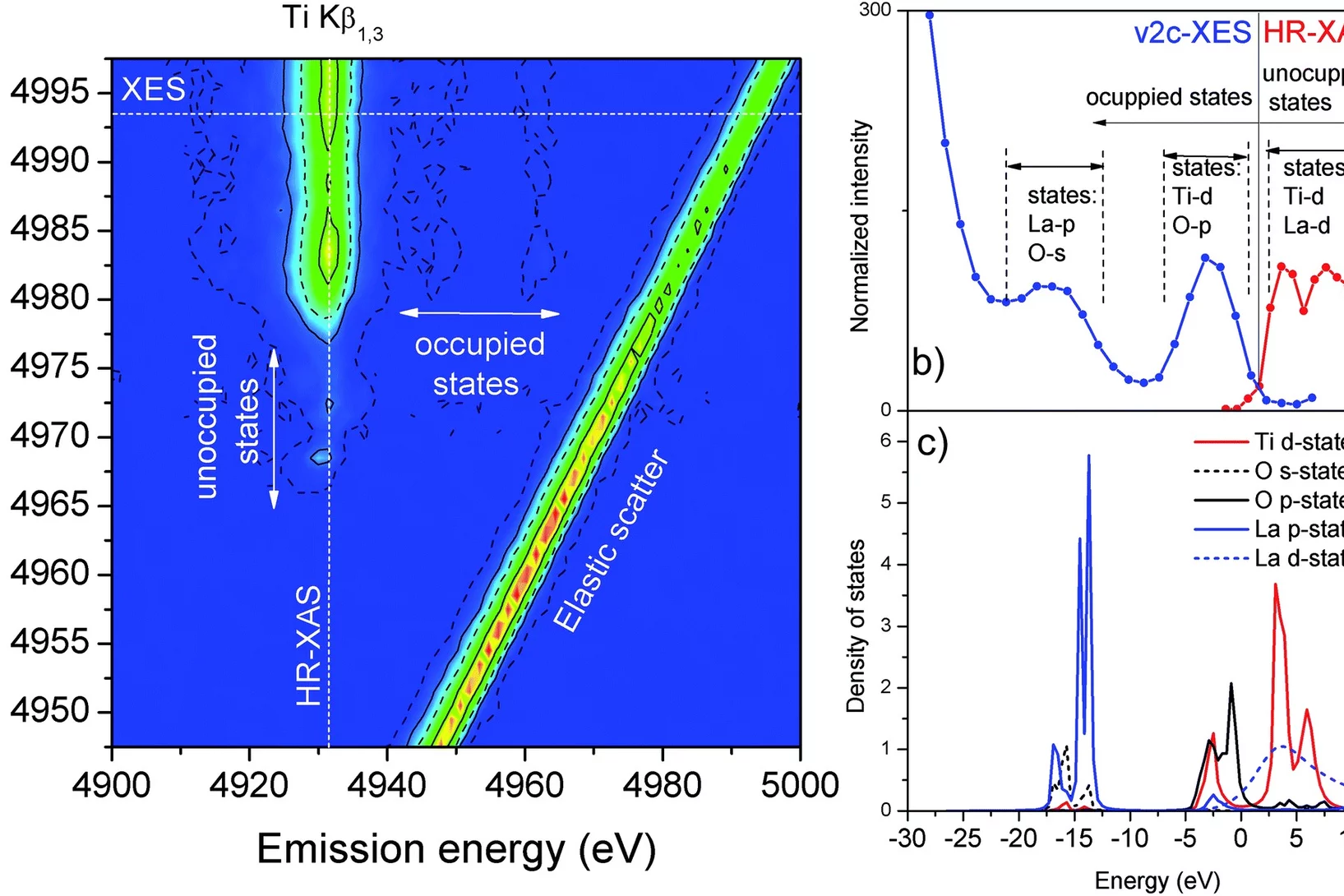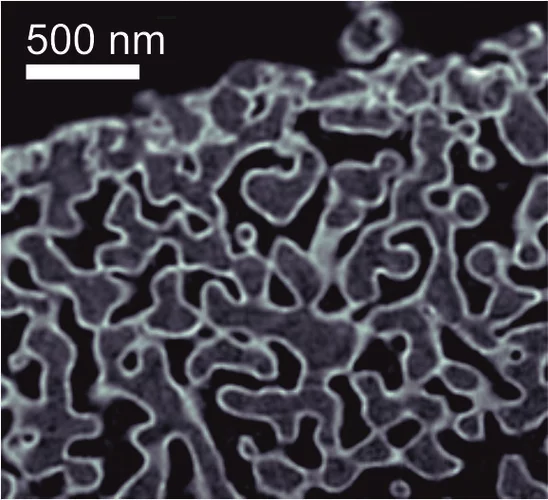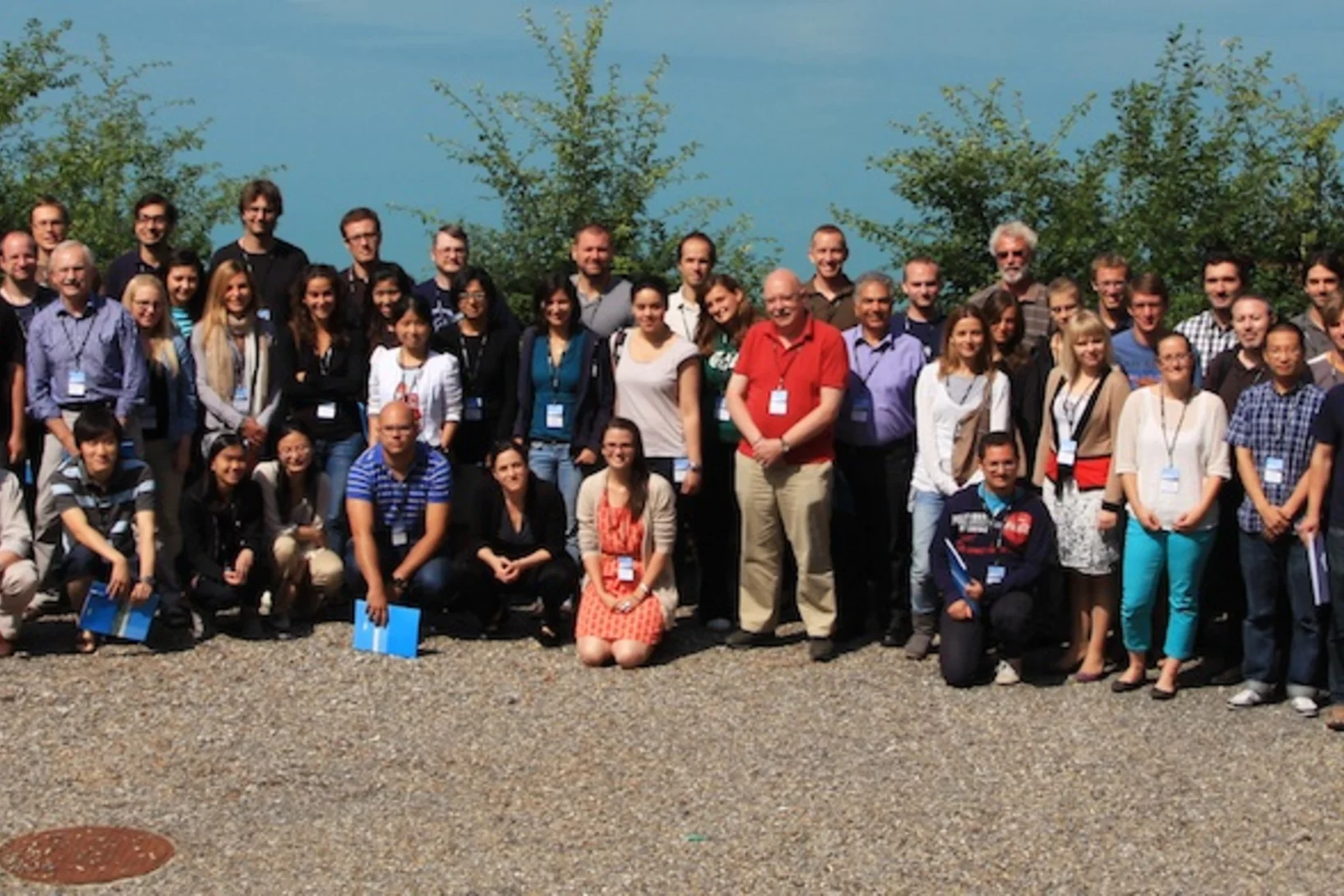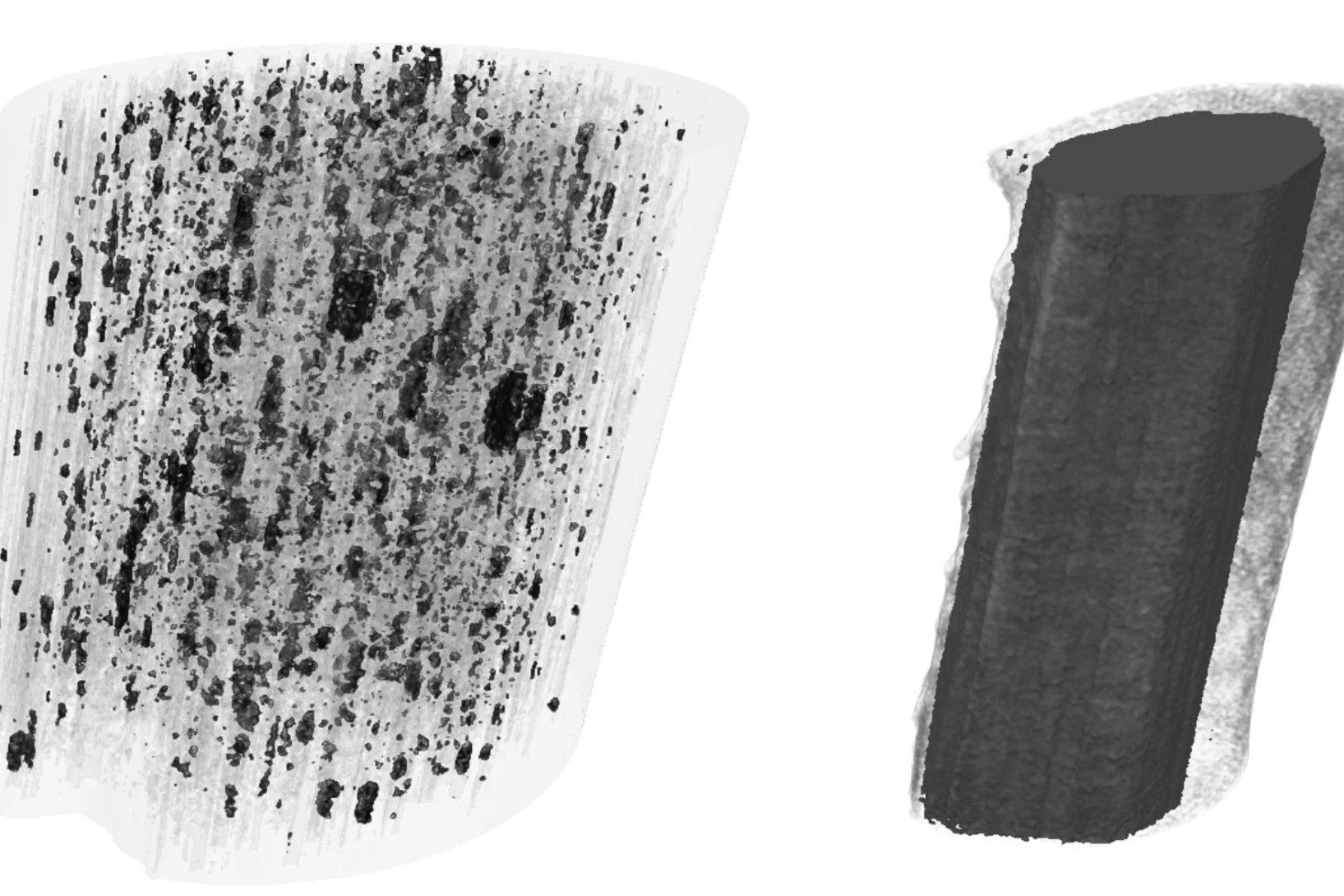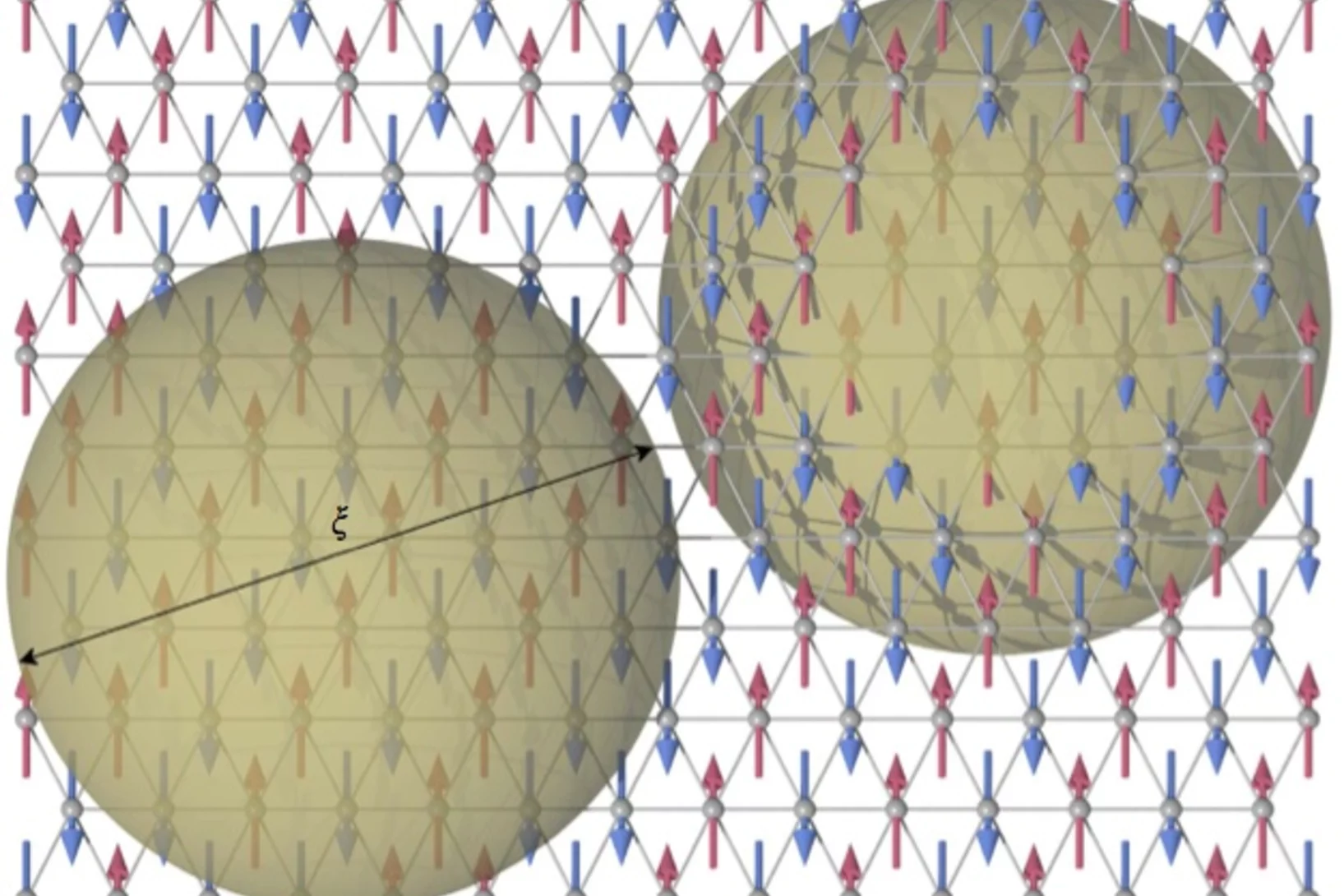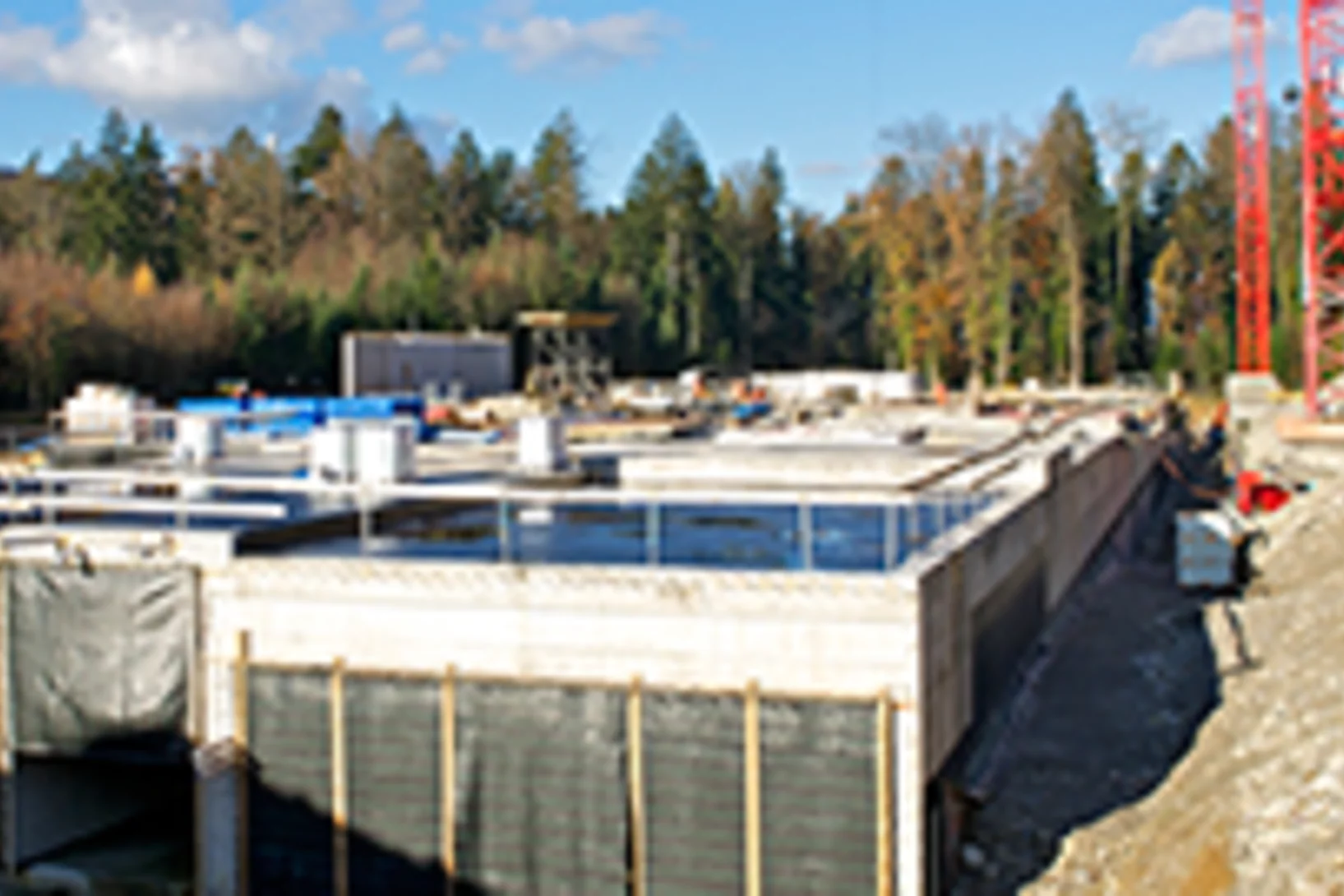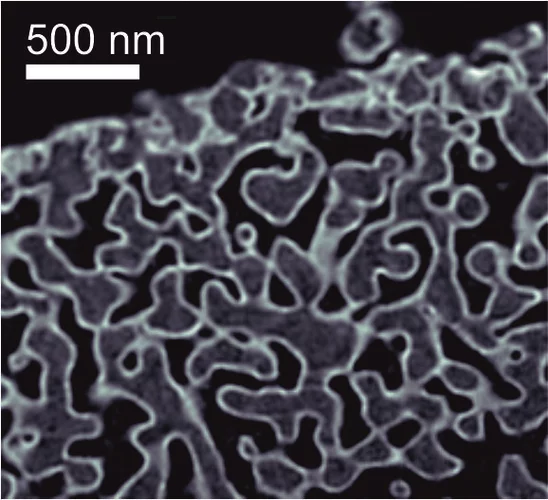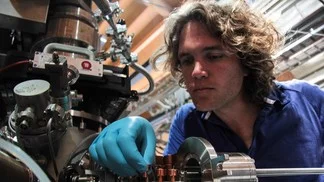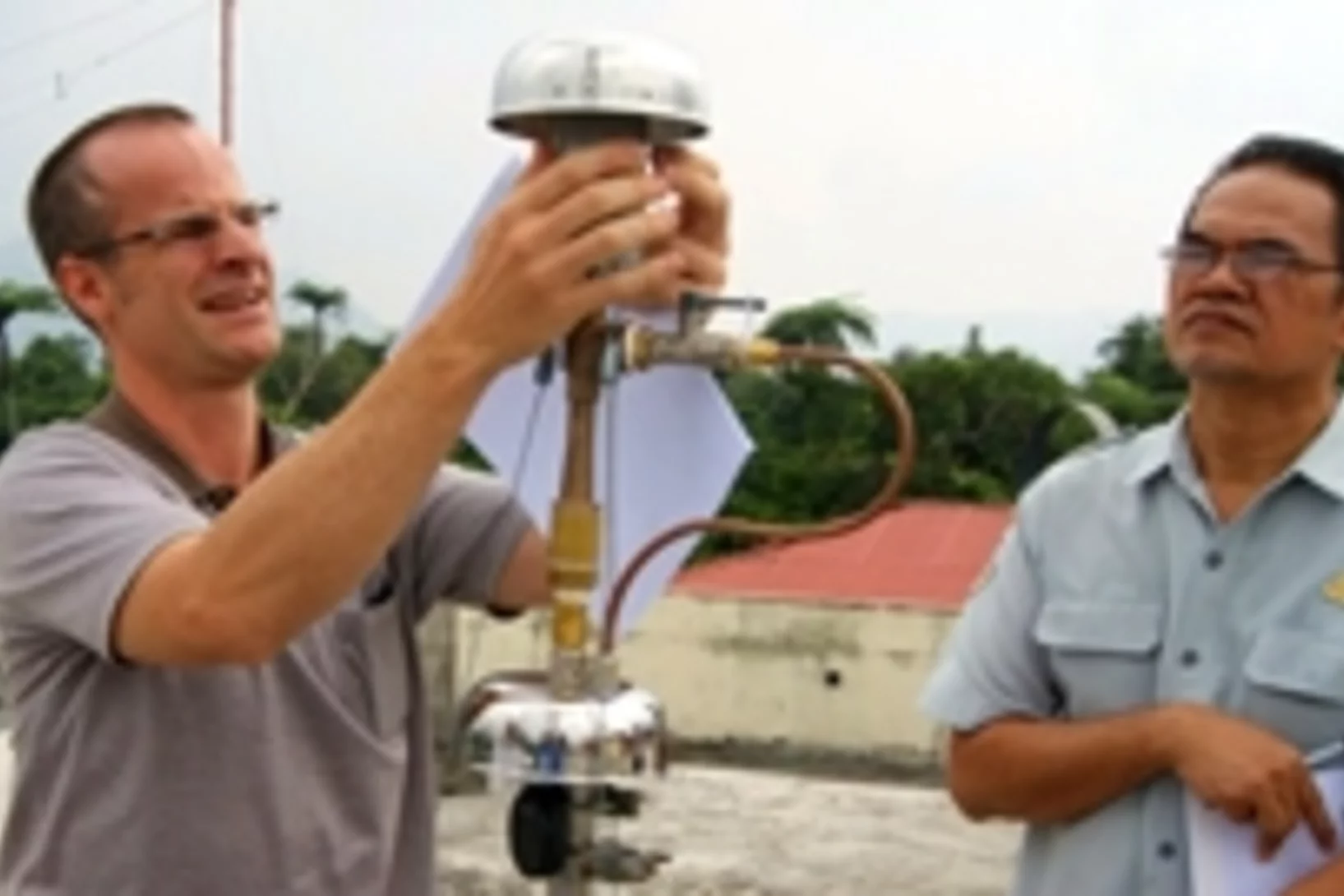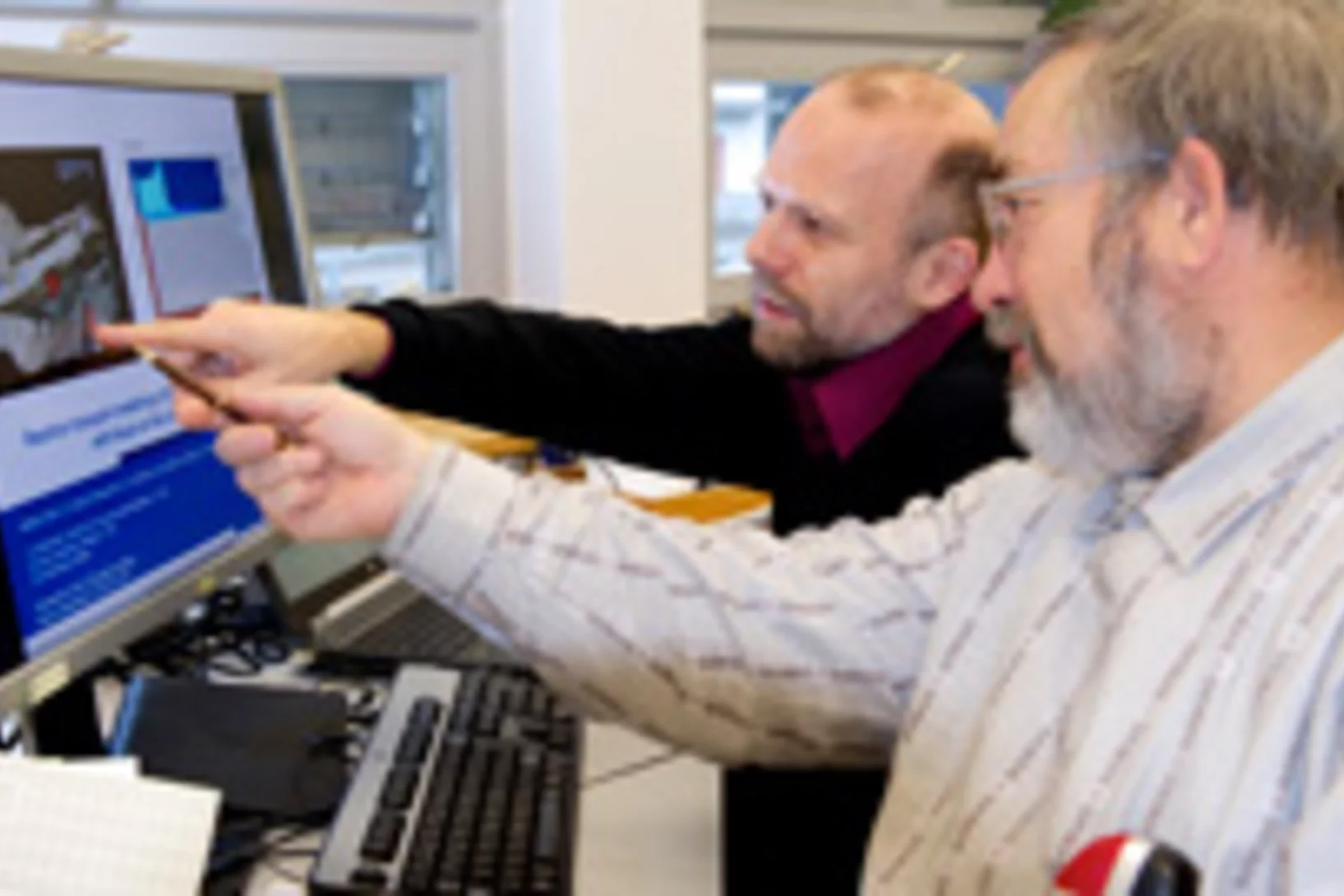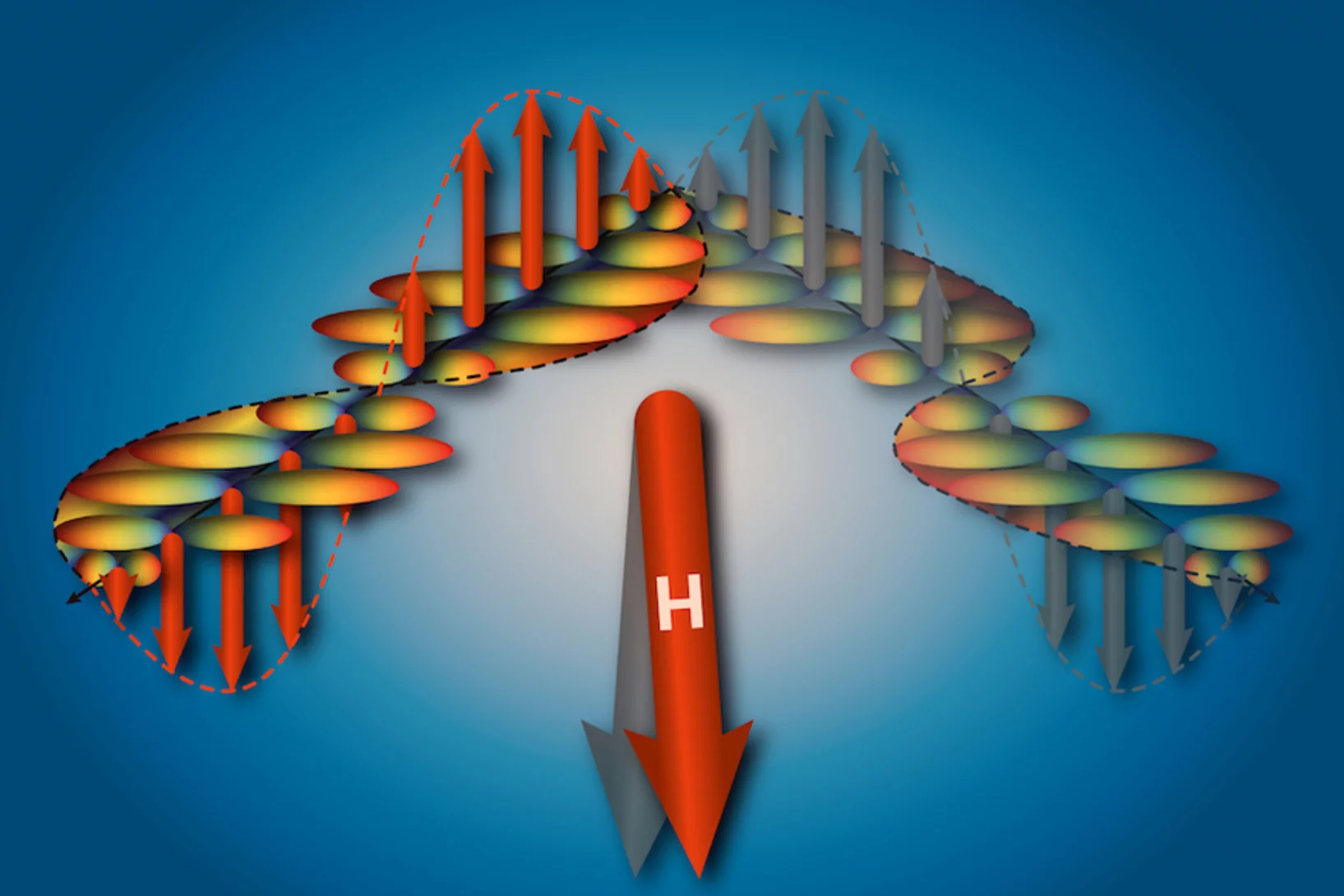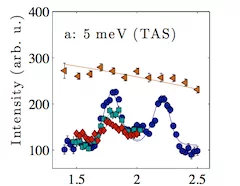Am Paul Scherrer Institut suchen Forschende nach Antworten auf die fundamentale Frage nach den Grundstrukturen der Materie und den fundamentalen Funktionsprinzipien in der Natur. Sie untersuchen Aufbau und Eigenschaften der Elementarteilchen – der kleinsten Bausteine der Materie – oder gehen der Frage nach, wie biologische Moleküle aufgebaut sind und wie sie ihre Funktion erfüllen. Das so gewonnene Wissen öffnet neue Lösungsansätze in Wissenschaft, Medizin oder Technologie.
Mehr dazu unter Überblick Grundlagen der Natur
Ton bleibt Ton: Wie Radionuklide am Wirtgestein im Tiefenlager haften
Forscher des Paul Scherrer Institutes PSI und der Ungarischen Akademie der Wissenschaften haben in einem EU-Projekt grundlegende Eigenschaften von Tongesteinen in einem Tiefenlager für hochradioaktive Abfälle untersucht. Die Forschungsergebnisse des PSI zeigen, dass die am Opalinuston-Gestein gewonnenen Erkenntnisse auf das in Ungarn vorkommende Bodaton-Gestein übertragen werden können.
Observed live with x-ray laser: Electricity controls magnetism
Researchers from the Paul Scherrer Institute PSI and ETH Zurich have now changed the magnetic arrangement in a material much faster than is possible with today’s hard drives. The researchers used a new technique where an electric field triggers these changes, in contrast to the magnetic fields commonly used in consumer devices.
Observed live with x-ray laser: electricity controls magnetism
Researchers from ETH Zurich and the Paul Scherrer Institute PSI demonstrate how the magnetic structure can be altered quickly in novel materials. The effect could be used in efficient hard drives of the future.
Interaktiver Medientisch zum SwissFEL
2016 wird der SwissFEL am Paul Scherrer Institut PSI seinen Betrieb aufnehmen. Im Besucherzentrum psi forum kann die neue Grossforschungsanlage des PSI bereits heute erkundet werden: Ein interaktiver Medientisch wird den SwissFEL von der Bauphase über die Inbetriebnahme bis zum Regulärbetrieb begleiten.
Bipartite magnetic parent phases in the iron oxypnictide superconductor
High-temperature superconductivity appears as a consequence of doping charge carriers into an undoped parent compound exhibiting antiferromagnetic order; therefore, ground-state properties of the parent compound are highly relevant to the superconducting state. On the basis of this logic, spin fluctuations have been considered as the origin of pairing of the superconducting electrons in the cuprates.
Direct Observation of Magnetic Metastability in Individual Iron Nanoparticles
Studying the magnetization of individual iron (Fe) nanoparticles by magnetic spectromicroscopy reveals that superparamagnetic (SPM) and ferromagnetic blocked (FM) nanoparticles can coexist in the investigated size range of 8-20 nm.
Die Vermessung des ökologischen Fussbadrucks
Mit ecoinvent betreibt das Paul Scherrer Institut zusammen mit Partnern an der ETH Zürich, der ETH Lausanne, der Empa und am Agroscope seit über 10 Jahren die weltweit führende Datenbank für Ökobilanzen. Die jüngst herausgegebene dritte Version von ecoinvent versammelt neue Daten in Bereichen wie Stromproduktion, Landwirtschaft, Verkehr, Bergbau und Chemikalien. Im für Lebenszyklusanalysen bedeutenden Stromsektor umfasst die Datenbank neu über 80 Prozent der globalen Produktion. Auch zuvor nicht berücksichtigte Technologien wie die Tiefengeothermie finden fortan in ecoinvent Berücksichtigung. Das Ergebnis sind präzisere ökologische Bewertungen von Produkten und Dienstleistungen
Mit Röntgenlaser live beobachtet: Elektrizität steuert Magnetisierung
Forscher von ETH und PSI zeigen, wie sich in neuartigen Materialien die magnetische Struktur schnell ändern lässt. Der Effekt könnte in zukünftigen leistungsfähigen Festplatten Anwendung finden.
Comprehensive study of the spin-charge interplay in antiferromagnetic La2-xSrxCuO4
The origin of the pseudogap and its relationship with superconductivity in the cuprates remains vague. In particular, the interplay between the pseudogap and magnetism is mysterious. Recent low-temperature angle-resolved photoemission spectroscopy (ARPES) experiments on the underdoped cuprate superconductors indicate the presence of a fully gapped Fermi surface (FS); even in the antiferromagnetic phase.
Pressure-Induced Quantum Critical and Multicritical Points in a Frustrated Spin Liquid
The quantum spin-liquid compound (C4H12N2)Cu2Cl6 is studied by muon spin relaxation under hydrostatic pressures up to 23.6 kbar. At low temperatures, pressure-induced incommensurate magnetic order is detected beyond a quantum critical point at Pc ∼ 4.3 kbar. An additional phase transition to a different ordered phase is observed at P1 ∼ 13.4 kbar. The data indicate that the high-pressure phase may be a commensurate one. The established (P-T) phase diagram reveals the corresponding pressure-induced multicritical point at P1, T1 = 2.0 K.
Der Protonenbeschleuniger des PSI: 40 Jahre Spitzenforschung
Materialforschung, Teilchenphysik, Molekularbiologie, Archäologie à seit 40 Jahren ermöglicht der grosse Protonenbeschleuniger des Paul Scherrer Instituts PSI Spitzenforschung auf verschiedenen Gebieten. Bei einem Festsymposium am 24. Februar 2014 wird das Jubiläum gefeiert.
Mit gebündelter Sonnenenergie zu reinem Recycling-Zink
Forscher des Paul Scherrer Instituts PSI haben ein solarthermisches Verfahren zur Gewinnung des technologisch wichtigen Wertstoffes Zinkoxid aus Zink-Recyclingprodukten im Labormassstab demonstriert. Der Reinheitsgrad des solaren Produktes übertrifft denjenigen, den man auf der industriell etablierten Route erhält
Strong Meissner screening change in superconducting radio frequency cavities due to mild baking
We investigate 'hot' regions with anomalous high field dissipation in bulk niobium superconducting radio frequency cavities for particle accelerators by using low energy muon spin rotation (LE-μSR) on corresponding cavity cutouts. We demonstrate that superconducting properties at the hot region are well described by the non-local Pippard/BCS model for niobium in the clean limit with a London penetration depth λL=23+/-2 nm . In contrast, a cutout sample from the 120C baked cavity shows a much larger λ>100nm and a depth dependent mean free path, likely due to gradient in vacancy concentration. We suggest that these vacancies can efficiently trap hydrogen and hence prevent the formation of hydrides responsible for rf losses in hot regions.
Ice-core based assessment of historical anthropogenic heavy metal (Cd, Cu, Sb, Zn) emissions in the Soviet Union
The development of strategies and policies aiming at the reduction of environmental exposure to air pollution requires the assessment of historical emissions. Although anthropogenic emissions from the extended territory of the Soviet Union (SU) considerably influenced concentrations of heavy metals in the Northern Hemisphere, Pb is the only metal with long-term historical emission estimates for this region available, whereas for selected other metals only single values exist.
Ingenieurskunst nach Mass
Damit die SwissFEL-Elektronen nicht auf die schiefe Bahn geratenKostengünstig und mit minimaler Fehlerrate – die Ziele, die sich die PSI-Ingenieure der Sektion Leistungselektronik für die Entwicklung der Magnet-Speisegeräte für den SwissFEL gesteckt haben, sind ehrgeizig.
Determination of conduction and valence band electronic structure of La2Ti2O7 thin film
The electronic structure of a La2Ti2O7-layered perovskite thin film was determined by resonant inelastic X-ray scattering (RIXS) measurements and FEFF calculations. It was found that the empty Ti and La d-band states dominate the conduction band of the structure, whereas the top edge of the valence band is mainly composed of filled O-p states. Furthermore, there is a pronounced overlap between occupied La-p states and O-s states, which are located deeper in the valence band.
Die natürliche Neugierde wecken
Interview mit Beat HenrichDer Physiker Beat Henrich leitet das Schülerlabor iLab am Paul Scherrer Institut. Im Interview erklärt er wie er Jugendliche für die Physik begeistert.
Physik im Gitter: Strömungen auf engem Raum besser verstehen
Die Gitter-Boltzmann-Methode entstand Anfang der 1990er Jahre als eine Berechnungsmethode, um die Boltzmann-Gleichung numerisch, also mithilfe von Computern zu lösen. Forscher des Paul Scherrer Instituts PSI erweitern nun mit einem neuen Modell den Anwendungsbereich der Gitter-Boltzmann-Methode auf komplexere Situationen. Mit ihrer Arbeit eröffnen sie den Zugang zu realitätsnäheren Computersimulationen von vielen technischen Vorgängen, wie sie sich etwa in den meist mikroporösen Strukturen technischer Katalysatoren, in Dieselpartikelfiltern, Verbrennungsmikroreaktoren oder Brennstoffzellen abspielen.
X-ray tomography reaches 16 nm isotropic 3D resolution
Researchers at PSI reported a demonstration of X-ray tomography with an unmatched isotropic 3D resolution of 16 nm in Scientific Reports. The measurement was performed at the cSAXS beamline at the Swiss Light Source using a prototype instrument of the OMNY (tOMography Nano crYo) project. Whereas this prototype measures at room temperature and atmospheric pressure, the OMNY system, to be commissioned later this year, will provide a cryogenic sample environment in ultra-high vacuum without compromising imaging capabilities. The researchers believe that such a combination of advanced imaging with state-of-the-art instrumentation is a promising path to fill the resolution gap between electron microscopy and X-ray imaging, also in case of radiation-sensitive materials such as polymer structures and biological systems.
PSI summer school 2014
The PSI summer school 2014 on Condensed Matter Research will be organized at the Institut Montana in Zug, Switzerland from August 9-15, 2014. The topic of the school will be 'Exploring time, energy and length scales in condensed matter' and the school will be followed by hands-on practical training at the PSI large user facilities SINQ, SμS and SLS. Online registration and detailed information is available from the school's webpage.
Unique insight into carbon fibers on the nanoscale
Novel carbon materials are promising candidates for light and robust low-cost materials of the future. Understanding their mechanical properties benefits from highly resolved three-dimensional (3D) maps of their porosity and density fluctuations in uninterrupted representative volumes, but these are difficult to obtain with conventional imaging methods.
Frustration-induced nanometre-scale inhomogeneity in a triangular antiferromagnet
Phase inhomogeneity of otherwise chemically homogenous electronic systems is an essential ingredient leading to fascinating functional properties, such as high-Tc superconductivity in cuprates, colossal magnetoresistance in manganites and giant electrostriction in relaxors. In these materials distinct phases compete and can coexist owing to intertwined ordered parameters. Charge degrees of freedom play a fundamental role, although phase-separated ground states have been envisioned theoretically also for pure spin systems with geometrical frustration that serves as a source of phase competition.
Hightech bis unter das Dach
Die Bauarbeiten im Wald laufen auf Hochtouren à bis Ende 2014 soll das Gebäude für den SwissFEL, die neue Grossforschungsanlage des Paul Scherrer Instituts PSI, fertiggestellt sein. Die Anforderungen an das Gebäude sind hoch. Es muss einen reibungslosen Betrieb der empfindlichen Anlage gewährleisten.
X-ray tomography reaches 16 nm isotropic 3D resolution
Tomographic microscopy has become an invaluable imaging method in both life and materials sciences. Oftentimes, high resolving power is required simultaneously with the ability to characterize large, statistically representative sample volumes. To this task, researchers at the Paul Scherrer Institut have established ptychographic computed tomography.
Spintronics: deciphering a material for future electronics
Topological insulators are the key to future spintronics technologies. EPFL scientists have unraveled how these strange materials work, overcoming one of the biggest obstacles on the way to next-generation applications.Read the full story
Aerosolmessungen: PSI-Forscher helfen, regionale Lücken auf dem Globus zu schliessen
Aerosole sind kleine Feinstaubpartikel in der Atmosphäre. Sie können durch direkte Absorption oder Streuung von Sonnenstrahlung oder als Keime für die Entstehung von Wolken das Weltklima beeinflussen. Das Bestreben von Klimaforschern, diese Effekte genau zu quantifizieren und somit die Klimamodelle zu verbessern, wird aber durch das Fehlen eines den gesamten Globus umspannenden Netzwerks von Aerosolmessstationen erschwert. Forscher des Paul Scherrer Instituts PSI engagieren sich im Projekt CATCOS (Capacity Building and Twinning for Climate Observing Systems), um kontinuierliche Aerosolmessungen dort zu ermöglichen, wo die Lücken am grössten sind.
Wie Gesteinsporen im Tiefenlager zuwachsen
Chemische Reaktionen, so viel steht fest, werden die Beschaffenheit des Tiefenlagers sowie des umliegenden Gesteins (Tongestein) verändern. Aber in welchem Ausmass und mit welchen Auswirkungen auf die Sicherheit? Forscher des Paul Scherrer Instituts versuchen diese Frage mit Hilfe einer Kombination von Experimenten und Computersimulationen zu beantworten.
Switching of magnetic domains reveals spatially inhomogeneous superconductivity
The interplay of magnetic and charge fluctuations can lead to quantum phases with exceptional electronic properties. A case in point is magnetically-driven superconductivity, where magnetic correlations fundamentally affect the underlying symmetry and generate new physical properties. The superconducting wavefunction in most known magnetic superconductors does not break translational symmetry.
Magnetoelastic Excitations in the Pyrochlore Spin Liquid Tb2Ti2O7
Tb2Ti2O7 is often referred to as a spin liquid as it does indeed remain in a magnetically disordered phase with spin dynamics down to 0.05 K, but this itself is a surprise since there are strong expectations of magnetic order and/or a structural distortion. However, throughout the spin liquid regime there are also strong signs of magnetoelastic coupling, leading to the suggestion that both spin and structural degrees of freedom are frustrated.
Supervolcano eruptions driven by melt buoyancy in large silicic magma chambers
Super-eruptions that dwarf all historical volcanic episodes in erupted volume and environmental impact are abundant in the geological record. Such eruptions of silica-rich magmas form large calderas. The mechanisms that trigger these supereruptions are elusive because the processes occurring in conventional volcanic systems cannot simply be scaled up to the much larger magma chambers beneath super volcanoes.

